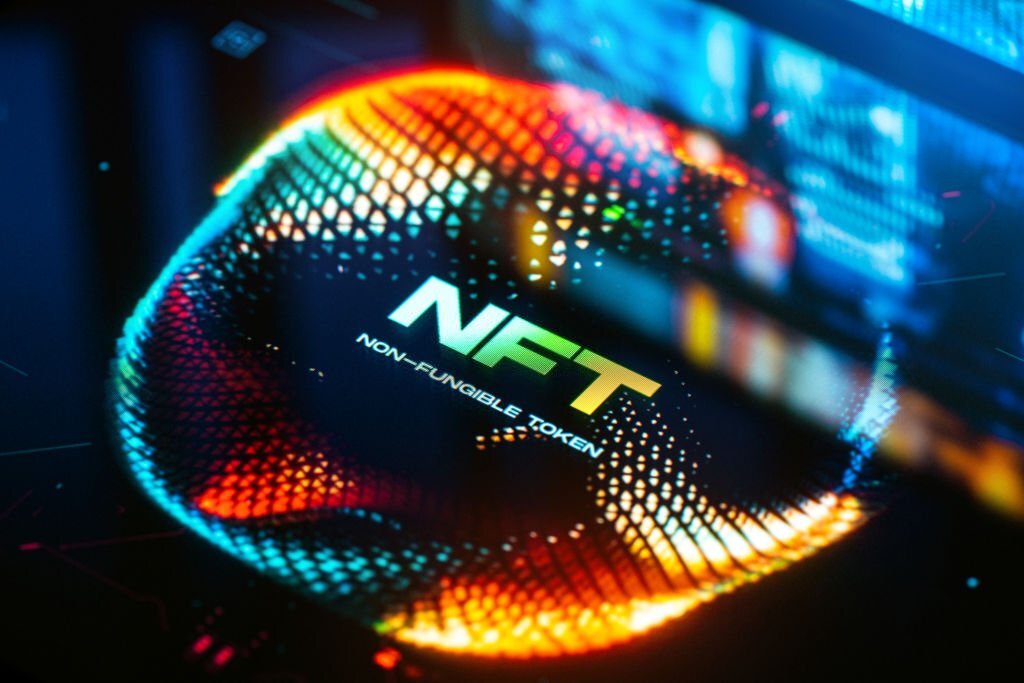The Apparel and Luxury Goods industry is the leading sector with the most number of brands launching non-fungible token (NFT) collections since 2020, according to a new research study by CoinGecko, the world’s largest independent cryptocurrency aggregator.
The study examines ‘traditional’ brands that have launched tradeable NFT collections since 2020, either independently or with a partner, and are headquartered in the United States or Europe with an international presence. The brands are categorized according to MSCI’s widely-recognized Global Industry Classification Standard (GICS), to identify the industry with the most number of brands launching NFT collections.
Out of 52 brands in the list, 19 brands (36%) are from the Apparel and Luxury Goods industry. Adidas fronts this sector with its ‘Adidas Originals into the Metaverse’ NFT collection, having a total trading volume of 47,000 ETH to date since its launch in December 2021. Nike, Dolce & Gabbana and Gucci come after Adidas, with higher trading volumes amongst other brands in this sector. Puma’s Nitro Token and Nitropass, and Tiffany & Co’s NFTiff collection are the latest launches by brands in the Apparel and Luxury Goods industry, in August 2022.
The Media industry takes second place, with 10 brands (19%) falling into this category. Time USA’s TIMEPieces NFT collection has the highest trading volume of 10,648 ETH amid brands in this sector. Other notable media companies with their own brand NFTs are Fortune, Reddit, Rolling Stone and Fox Corp.
Beverages, Food and Staples Retailing, Entertainment, Automobiles and Personal Products are industries with only four to five brands with their own NFT collection. Rounding out the list are Leisure Products, Household Products, Household Durables and Airlines – industries with only one brand with their own NFT collection.
Out of 24 GICS industries, only 11 were found to have experimented with launching NFTs, including the industries above. Some of the industries that have not explored nor dabbled with NFTs are Health Care, Construction, Utilities and Real Estate.
|
Industries |
Brands with NFTs |
|
Apparel & Luxury Goods |
19 |
|
Media |
10 |
|
Beverages |
5 |
|
Food & Staples Retailing |
4 |
|
Entertainment |
4 |
|
Automobiles |
4 |
|
Personal Products |
2 |
|
Leisure Products |
1 |
|
Household Products |
1 |
|
Household Durables |
1 |
|
Airlines |
1 |
Table: Industries with Brand NFTs, since 2020
Noting the findings, Bobby Ong, COO and co-founder of CoinGecko, commented:
In spite of current bear market conditions, many of these ‘traditional’ companies are leveraging NFTs in their brand and marketing efforts, as a way to engage their audience and communities.
It will be interesting to see how this trend holds up next year – and if brands in industries outside of this list unlock NFTs in their marketing strategies.
Methodology
The study examined ‘traditional’ brands that have launched tradeable NFT collections since 2020, either independently or with a partner, and thereafter are categorized according to MSCI’s Global Industry Classification Standard (GICS), to identify the industry with the most number of brands launching NFT collections. The MSCI’s GICS was selected as it provides a comprehensive industry classification across all businesses.
‘Traditional’ brands are defined as companies with core businesses selling products or services without relation to cryptocurrency or the NFT industry. The brands reviewed in this study are headquartered in the United States or Europe, with a presence in at least one other geographical market.
This data set excludes:
-
Brands that indirectly ride on or passively endorse other NFT collections
-
Brands that launch a 1/1 NFT
-
NFTs that are non-tradeable, have never been traded or have no trading volume
-
Utility NFTs launched by brands, such as event tickets
When considering brands with multiple NFT collections, the total trading volume across all collections are taken into account.
In this study, the ‘Textiles, Apparel and Luxury Goods’ industry classification has been shortened to ‘Apparel and Luxury Goods’ for clarity of communication.
© Solana Daily Brief, Inc. All Rights Reserved. This article is for informational purposes only. It is not to be used as legal, tax, investment, financial, or other advice.
